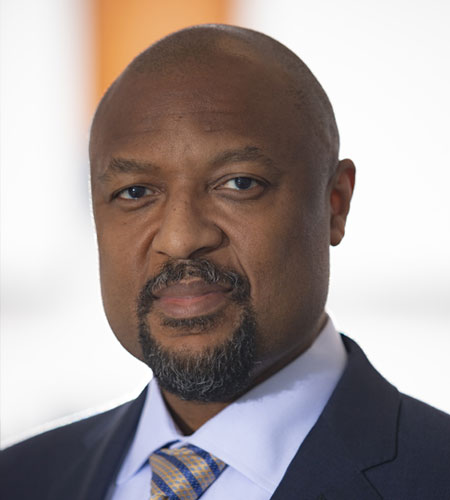
Charles Isbell
Dean and John P. Imlay Jr. Chair
College of Computing
The College of Computing and its four schools — Computer Science, Interactive Computing, Computational Science and Engineering, and Cybersecurity and Privacy — push the boundaries of knowledge across the full breadth of modern computing. The College is a global leader in computing education through innovations such as its much-copied Threads curriculum for undergraduates and its Online Master of Science in Computer Science (OMSCS). OMSCS is the world’s first graduate degree program delivered through “massive online” platforms and is the largest master’s degree program in computer science in the nation. The College is home to multiple interdisciplinary research centers, including the GVU Center, the Algorithms and Randomness Center, the Center for Novel Research into Computing Hierarchies, the Center for Machine Learning, and the Constellations Center for Equity in Computing. College faculty lead several of Georgia Tech’s interdisciplinary research units devoted to such areas as cybersecurity, data science, and people and technology. More than 15,000 students are enrolled in the College, including 3,300 undergraduates and more than 12,000 residential and online graduate students. College faculty lead several of Georgia Tech’s interdisciplinary research units devoted to such areas as robotics, data science, and people and technology.
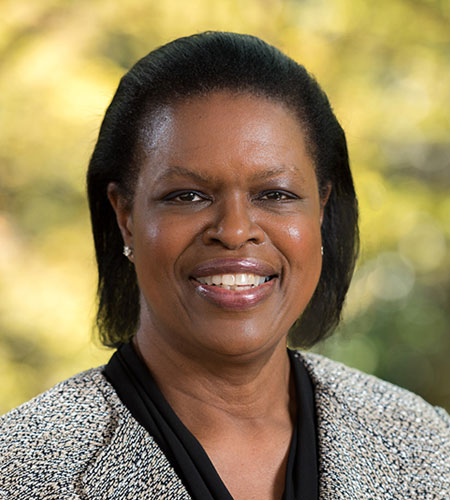
Kaye Husbands Fealing
Dean and Ivan Allen Jr. Chair
Ivan Allen College of Liberal Arts
Ivan Allen College of Liberal Arts prepares graduates to play a crucial role in solving the complex challenges facing our world. They merge globally and ethically informed perspectives with a focus on science and technology to address societal concerns and engender compassionate solutions to improve the human condition. Graduates from the College’s B.S., M.S., and Ph.D. degree programs assume leadership roles in law, industry, government, education, and the nonprofit world. Named for former Atlanta Mayor Ivan Allen Jr., the College is internationally recognized for curricula and research in fields such as science and technology policy; digital media and interactive game design; history and sociology of technology; international economics; national security; and modern languages and culture. The College is also home to Georgia Tech’s Army, Navy, and Air Force ROTC units.
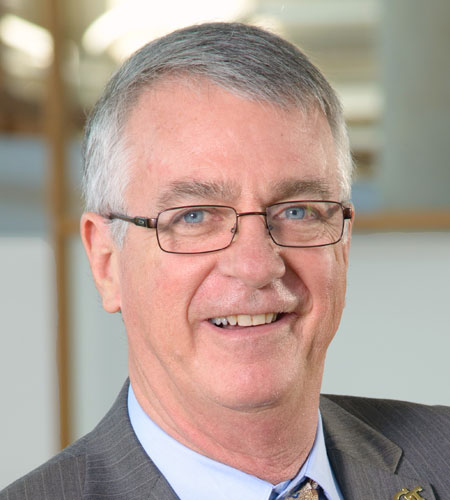
Steven P. French
Dean
College of Design
Unlike traditional art and design programs, the Georgia Tech College of Design focuses on technologies that enable better design. Then we use the design process to fuse technology with places, products, lifestyles, learning, and healthcare.
Students and faculty in the Schools of Architecture, Building Construction, City and Regional Planning, Industrial Design, and Music develop interactive products, robots, instruments, buildings, environments, and digital experiences.
The College’s research initiatives encompass today’s most pressing human and built-environment issues — from accessibility, sustainability, and smart cities to groundbreaking efforts in spatial analysis and music technology. More than 1,000 graduate and undergraduate students are enrolled in the College of Design. An additional 1,000 students from across campus — representing every major at Georgia Tech — enroll in music courses each semester.
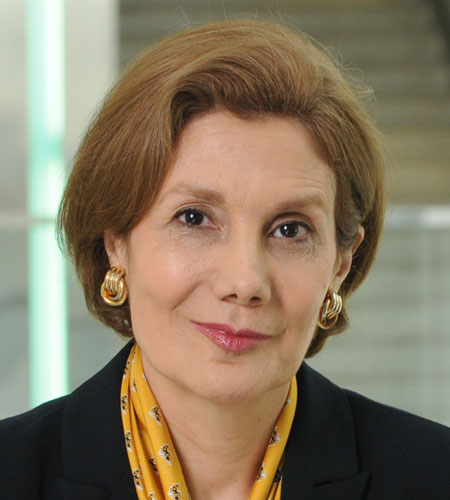
Maryam Alavi
Dean and Stephen P. Zelnak Jr. Chair
Ernest Scheller Jr. College of Business
Established more than a century ago, the Georgia Tech Scheller College of Business has a distinguished history as part of a world-renowned technological research university. Scheller is strategically positioned at the intersection of business and technology, with a commitment to developing principled, forward-thinking leaders who use technology as their vehicle for creating value, driving innovation, and improving the human condition. Scheller offers AACSB-accredited bachelor’s, master’s, and Ph.D. programs in business administration, along with a number of interdisciplinary and dual degrees in computing, design, engineering, and medicine (in partnership with the Morehouse School of Medicine). These programs are recognized year after year in the top 10 among public institutions by U.S. News & World Report, Bloomberg Businessweek, The Financial Times, and more. In addition to degreed programs, Scheller also offers open enrollment and custom corporate executive education programs specifically designed to meet the unique needs of today’s professionals and companies. Located in the heart of midtown Atlanta’s Technology Square — an area with the highest density of startups, corporate innovators, and academic researchers in the southeastern U.S. — Scheller provides its students with unparalleled experiential learning opportunities as part of a dynamic innovation ecosystem. Through top-ranked career services and an expansive alumni network, Scheller is able to connect students and graduates to the world’s most innovative companies, not just in Atlanta but around the world.
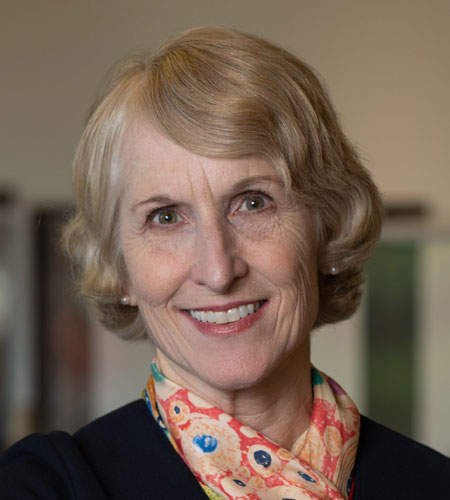
Susan Lozier
Dean and Betsy Middleton and John Clark Sutherland Chair
College of Sciences
The College of Sciences leads Georgia Tech’s charge to create a diverse and inclusive community that makes fundamental discoveries, addresses humanity’s most pressing challenges, and develops global leaders in science and technology.
The College cultivates curiosity, encourages exploration, and fosters innovation to develop scientific solutions for a better society. Working across six internationally ranked schools, faculty, staff, alumni, and students mentor one another to become bold, creative, collaborative leaders who push the frontiers of human knowledge, imagination, and innovation.
Together, College of Sciences students and faculty advance both fundamental science and solution-based science, and they support the arc that connects these avenues of discovery. Toward this end, researchers undertake high-impact work in collaboration with world-class investigators in state-of-the-art facilities.
Along with catalyzing discovery and solutions, and building communities of excellence in research and education, the College is focusing intently on convergent, team science that seeks to improve the health of the planet and people across the state of Georgia, our nation, and the world.
College of Sciences graduates are well honed in thinking critically, testing hypotheses, and engaging with others to unravel complex problems. They draw conclusions, reach decisions, and solve problems through the dynamic interplay of data, reason, and imagination.
From exploring the quantum logic of ultra-cold atoms and the innerworkings of the stars and nearby galaxies; to deciphering proofs of the billion-year history of Earth’s oceans and atmosphere; to investigating the origins of life throughout the cosmos; to identifying how brains and bodies work — College of Sciences students embody the value and impact of scientific curiosity shaped by careful mentoring and deep respect for how much we still must discover and understand.
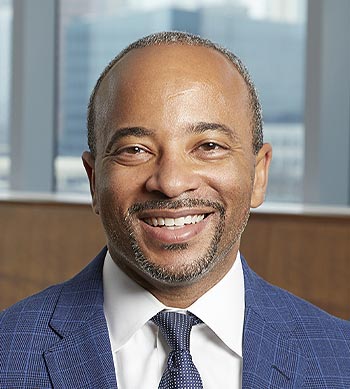
Raheem Beyah
Dean and Southern Company Chair
College of Engineering
Since Georgia Tech opened its doors in 1888 with the establishment of the School of Mechanical Engineering, the College of Engineering has grown to become one of the most prominent engineering programs in the world. Today, the College includes eight engineering schools with more than 16,000 undergraduate and graduate students. The College consistently ranks among the top five elite engineering schools in the country, and all undergraduate and graduate engineering programs are ranked in the top 10 nationally. The College is the largest of its kind in the country and No. 1 in the number of degrees awarded to women and minority engineers. Today, it has more than 100,000 alumni living in 120 countries around the world.
The College believes that transformational research and education are fundamental to human progress. Its aspiration is to generate talent, ideas, and solutions with unmatched impact and scale. The College leads in defining and solving the most complex problems facing our world through an inclusive and diverse community of engineers.
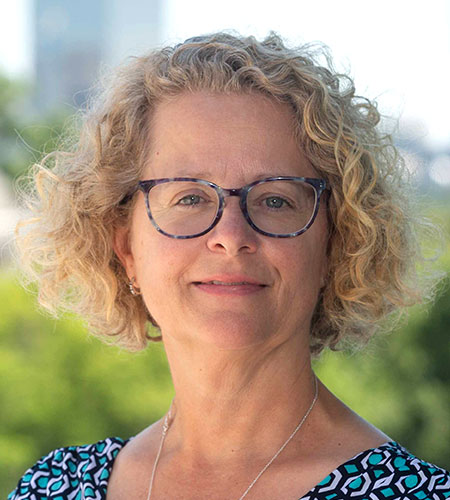
Leslie Sharp
Dean
Libraries
The Georgia Tech Library is recognized internationally for robust digital services, student engagement initiatives, transformation of physical spaces, and innovative programming and services. Millions of books (including popular reading and science fiction), journals, technical reports, government documents, maps, videos, and other items are available via the Library. The Library’s website features access to hundreds of databases and thousands of books, e-books, scholarly journals and e-journals, reports, electronic dissertations, discipline and course-specific research guides, and much more. With more than 500,000 visits to the website, nearly 4 million searches and full-text content accessed, and more than 1 million on-site visits annually, the Library’s services and resources are heavily utilized by the Georgia Tech community. For students, the Library is a 24/7 gathering place — cultivating intellectual inquiry, promoting academic discourse, and fostering knowledge. For faculty, the Library supports world-class advancements in teaching and research. The Library also manages the G. Wayne Clough Undergraduate Learning Commons, which is dedicated to student academic enrichment and innovative learning opportunities. Clough Commons is a popular destination for students, with more than 3 million visits annually.

Nelson C. Baker
Dean
Georgia Tech Professional Education
Georgia Tech Professional Education (GTPE) is the global campus and lifetime education arm of the Institute, providing continuing education for more than a century and learning at a distance for more than 40 years.
GTPE offers more than 600 courses and bootcamps, 63 professional and graduate certificate programs, and 13 online degree programs in tech, business, and industry-specific subject matter to meet the needs of working professionals and industry partners. These programs are offered worldwide both online and on-site and are designed to position professionals to deliver immediate workplace impact using knowledge and skills learned from Georgia Tech’s faculty experts and one another.
In addition to professional academic offerings, the division administers K-12 outreach and English as a Second Language programs and manages meeting and event facilities at the Georgia Tech Global Learning Center in Atlanta and at Georgia Tech-Savannah.
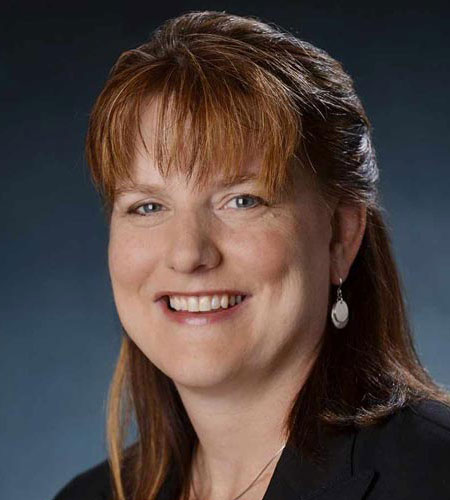
Kelly Fox
Executive Vice President for Administration and Finance
Administration and Finance
The Division of Administration and Finance leads, supports, and enables institutional effectiveness by providing strategic and responsive administrative, financial, information, and physical infrastructure services for Georgia Tech. The approximately 1,700 employees within Administration and Finance provide administrative and physical infrastructure services to support Georgia Tech’s students, faculty, and staff — the platform for the Institute’s continuing success in achieving its mission of education, research, and economic development. Administration and Finance has responsibility for Georgia Tech’s fiscal integrity and accountability for budget, revenues, expenditures, and money management to the president; Board of Regents of the University System of Georgia; state and federal government; other public and private sponsors; Institute constituents; and the public.
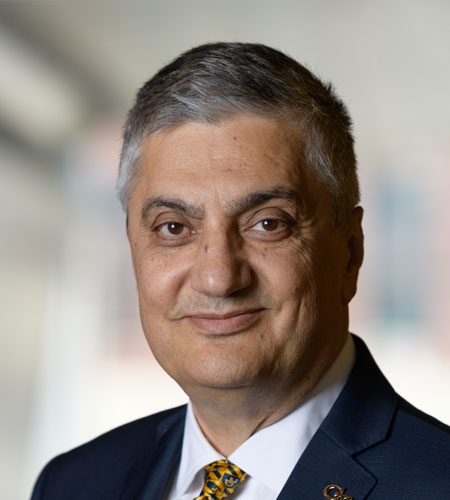
Chaouki T. Abdallah
Executive Vice President for Research
Office of the Executive Vice President for Research
The Office of the Executive Vice President for Research provides leadership and strategic direction to Georgia Tech’s $1 billion research enterprise. The goals of this office are to create transformative research opportunities, strengthen collaborative partnerships, and maximize Tech’s economic and societal impact across the research enterprise and around the world. Direct reporting units include 11 interdisciplinary research institutes, the Georgia Tech Research Institute (Tech’s applied research arm), the Enterprise Innovation Institute (the nation’s largest university-based economic development, technology transfer, and industry assistance organization), the Georgia Tech Research Corporation (an affiliated organization that oversees contracting and licensing), and the Office of Industry Collaboration (created to coordinate large company partnerships). The recently created position of chief commercialization officer is leading the development of a thriving campuswide entrepreneurial ecosystem.

Todd Stansbury
Director of Athletics
Georgia Tech Athletic Association
With more than 400 student-athletes across 17 varsity sports, Georgia Tech competes at the highest level of intercollegiate athletics as a member of NCAA Division I and the Atlantic Coast Conference, while also developing young people who will change the world. Georgia Tech has long been a leader in innovation in college athletics, with the NCAA CHAMPS/Life Skills Program (known as the Total Person Program at Georgia Tech), commitments to athletic scholarships until a student-athlete graduates, and the use of virtual reality in recruiting among the many concepts that originated on The Flats. The Yellow Jackets have won five national championships during their illustrious history — four in football (1917, 1928, 1952, and 1990) and one in women’s tennis (2007). They also have made two appearances in the Final Four in men’s basketball (1990 and 2004) and three in the College World Series in baseball (1994, 2002, and 2006). Combining a world-class education with top-notch athletics, Georgia Tech has produced 85 Academic All-Americans.
